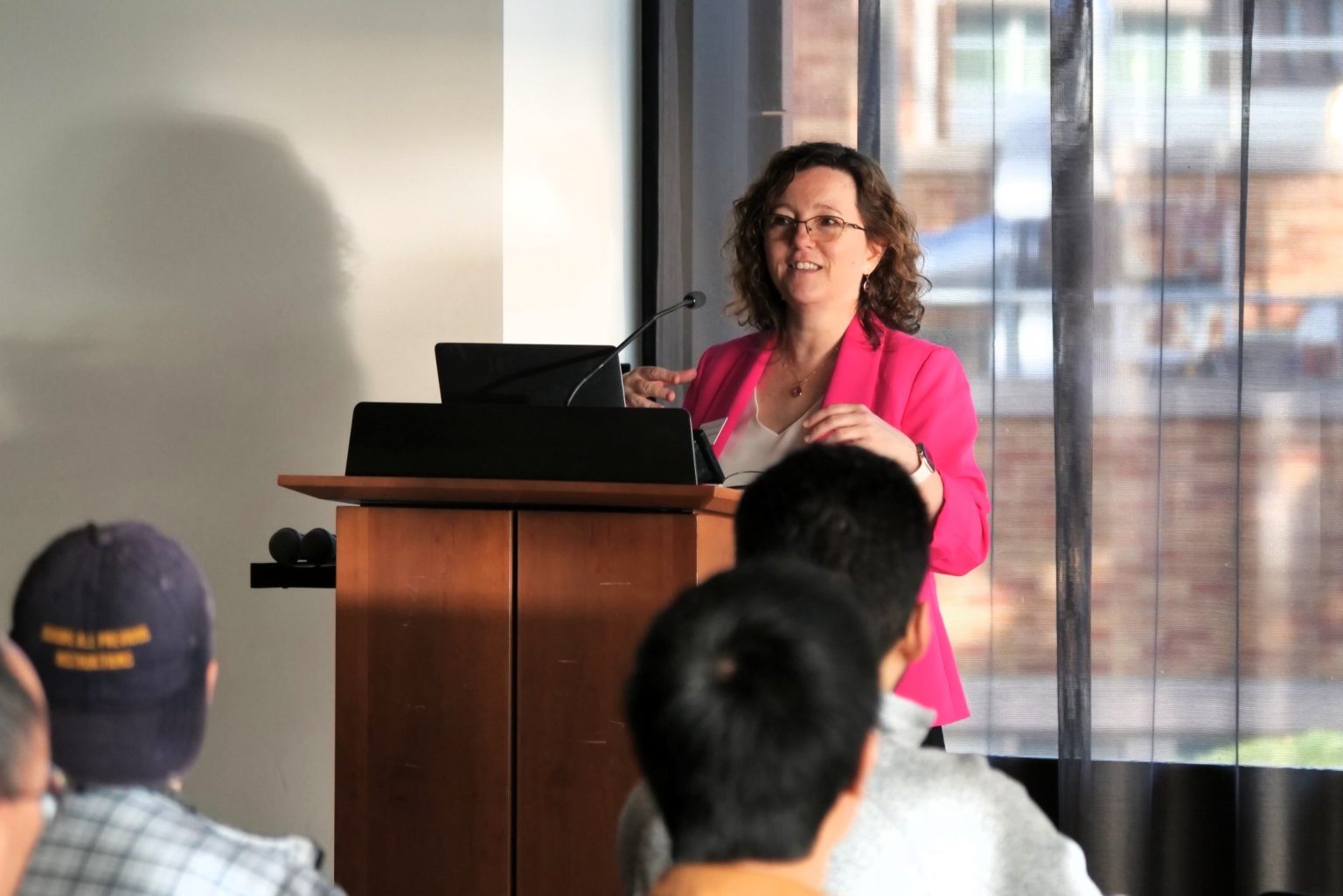UW Allen School Reimagines Tech’s Impact Through Six Grand Challenges
The University of Washington’s Paul G. Allen School of Computer Science & Engineering is charting a new course for how its research can meaningfully impact society. During its annual Research Showcase and Open House in Seattle, the school unveiled six ambitious “Grand Challenges” designed to guide its future work. These challenges envision technology that prioritizes human well-being – protecting privacy, supporting mental health, broadening accessibility, earning public trust, and sustaining both people and the planet. “We want to organize ourselves into some more specific grand challenges that we can tackle together to have an even greater impact,” explained Magdalena Balazinska, director of the Allen School and a UW computer science professor, as she introduced the initiative to attendees.
The six challenges reflect the Allen School’s commitment to human-centered computing: anticipating security and privacy concerns as technology becomes more pervasive; making quality mental health support universally available; designing technology to be inherently accessible rather than as an afterthought; creating AI systems that are transparent and equitable; building trustworthy systems that perform exactly as intended; and developing technologies that support sustainability. This approach represents a natural evolution for the school, which has grown dramatically in recent years – now boasting over 90 faculty members, including 74 on the tenure track, and graduating more than 800 students annually across its programs. Professor Shwetak Patel, a serial entrepreneur and MacArthur Fellow, noted that the initiative emerged organically to reconnect increasingly specialized subfields around shared, human-centered problems.
What sets the Allen School apart in tackling these challenges is its unique relationship with industry. Currently, eighteen faculty members hold “concurrent engagements” – formally dividing their time between the university and organizations like Google, Meta, Microsoft, and the Allen Institute for AI. Patel, who splits his time with Google, describes this arrangement as the school’s “superpower,” providing faculty and students with access to real-world data, computing resources, and challenges that would be inaccessible within academia alone. “A lot of the problems we’re trying to solve, you cannot solve them just at the university,” Patel explained, pointing to research on open-source foundation models and AI for mental health that requires industrial-scale resources. While these arrangements can stretch professors’ attention, with many teaching just one or two courses annually, Patel believes the benefits far outweigh the costs: “I’d rather have 50% of somebody than 0% of somebody, and we’ll make it work.”
The school’s industry connections were also evident in the evening’s awards. The prestigious Madrona Prize went to a project titled “Enhancing Personalized Multi-Turn Dialogue with Curiosity Reward,” which makes AI chatbots more personal by giving them a “curiosity reward” that motivates them to actively learn about users during conversations. Notably, the lead researcher, UW Ph.D. student Yanming Wan, conducted this work while interning at Google DeepMind. This pattern of industry-academic collaboration was visible throughout the showcase, where graduate students presented innovative projects spanning artificial intelligence for speech, language, and accessibility.
Among the standout projects at the evening poster session was DopFone, which transforms smartphones into fetal heart rate monitors by using phone speakers and microphones to create an accessible alternative to traditional doppler ultrasounds. “The major impact would be in rural, remote and low-resource settings where access to such maternity care is less — also called maternity care deserts,” explained Poojita Garg, the second-year PhD student behind the project. Other highlighted innovations included CourseSLM, a custom-built chatbot designed to help students stay focused on learning; VoxServe, which makes speech-language models run more efficiently; ConvFill, a system that reduces delay in voice-based large language models; ConsumerBench, a framework for testing AI applications on consumer hardware; and a project designing chatbots for sensitive health contexts, specifically contraceptive care in Kenyan pharmacies.
The Allen School’s research showcase demonstrated how its unique approach to computer science education and research is evolving to meet today’s challenges. By combining academic rigor with industry partnerships, the school is positioning itself at the forefront of developing technologies that are not just technically innovative but also ethically sound and human-centered. As computing becomes increasingly embedded in every aspect of society, the Allen School’s Grand Challenges initiative represents a thoughtful framework for ensuring that technological advancement serves humanity’s best interests. Through continued collaboration across academic disciplines and with industry partners, the school is working to create a future where technology enhances human potential while addressing critical societal needs.


